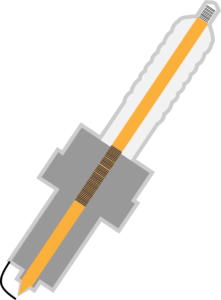How Often Should Spark Plugs Be Changed?
Spark plugs play an essential role in the function of your vehicle. Without them, your car wouldn’t start, let alone run. Spark plugs generally have long lives and are pretty durable, but like many components on your vehicle, need to be replaced periodically. Neglecting spark plug replacement can lead to poor fuel economy, rough running, and misfires, potentially damaging other, more expensive components like catalytic converters. Read on to learn more about the function of spark plugs, why changing them is important, and how often it should be done.
What Is a Spark Plug?
Spark plugs are small, cylindrical devices that screw into the cylinder head. The bottom of the spark plug sits above the piston in the cylinder. Spark plugs are made of various metals, as well as ceramic. The ceramic insulator surrounds a central electrode made of copper, which runs from the top of the plug to the bottom. The tip of the spark plug has a gap between the central and ground electrode. A spark occurs when the current jumps the gap between the two electrodes. There is one spark plug per cylinder. An inline-four engine has four plugs, and a V6 has six, etc.

What Do Spark Plugs Do?
Gasoline engines work by igniting a mixture of air and fuel. The explosion drives the piston down, rotating the crankshaft, and eventually driving the wheels. A spark is needed to initiate combustion. The spark plug is responsible for this. The timing of the spark is controlled by the vehicle’s ECU (older engines utilized a distributor, which timed the spark plug mechanically off the rotation of the camshaft).
Signs of Bad Spark Plugs
As an essential component to engine operation, faulty or failed spark plugs can create some pretty noticeable symptoms while you drive.
Misfiring
If one plug is not working, a misfire will occur. A misfire will cause unburnt fuel to pass through the exhaust system, damaging the catalytic converters. A misfire will usually trigger a check engine light.
Poor Fuel Economy
Bad spark plugs can cause a 30% drop in fuel economy. Lower gas mileage is a direct result of misfires. Bad spark plugs may be to blame if
Engine Knock
Knock, also called ping or detonation, occurs when unburnt fuel ignites after the spark plug fires. Knock is often be heard under acceleration and can the result of spark plugs not functioning as they should.
Rough Running, Idling, and Starting
Faulty spark plugs may lead to delayed spark. Delayed spark can cause notable issues on startup and when idling. If your car is having issues starting, spark plugs may be to blame.
How Often Should I Change My Spark Plugs?
As spark plugs age, they become less effective. If the plugs don’t generate an adequate spark, you will run into the issues listed above. Spark plug replacement intervals vary by vehicle. For most cars and trucks, you can expect to replace plugs every 30,000 to 90,000 miles. Checking your owner’s manual or talking to a service advisor is a good way to know when to get this service done.
Spark Plug Replacement at Borst Automotive
New spark plugs should be on your list of regular services to keep your car or truck running at its best. Borst Automotive has four locations across Mesa, Phoenix, and Tucson AZ, all staffed with ASE-certified technicians. Give us a call or schedule an appointment online today, and trust your vehicle to the teams at Borst!
[/et_pb_text][/et_pb_column] [/et_pb_row] [/et_pb_section]
Borst Automotive is here to help when you need it. Give us a call, schedule an appointment, or stop in today!
